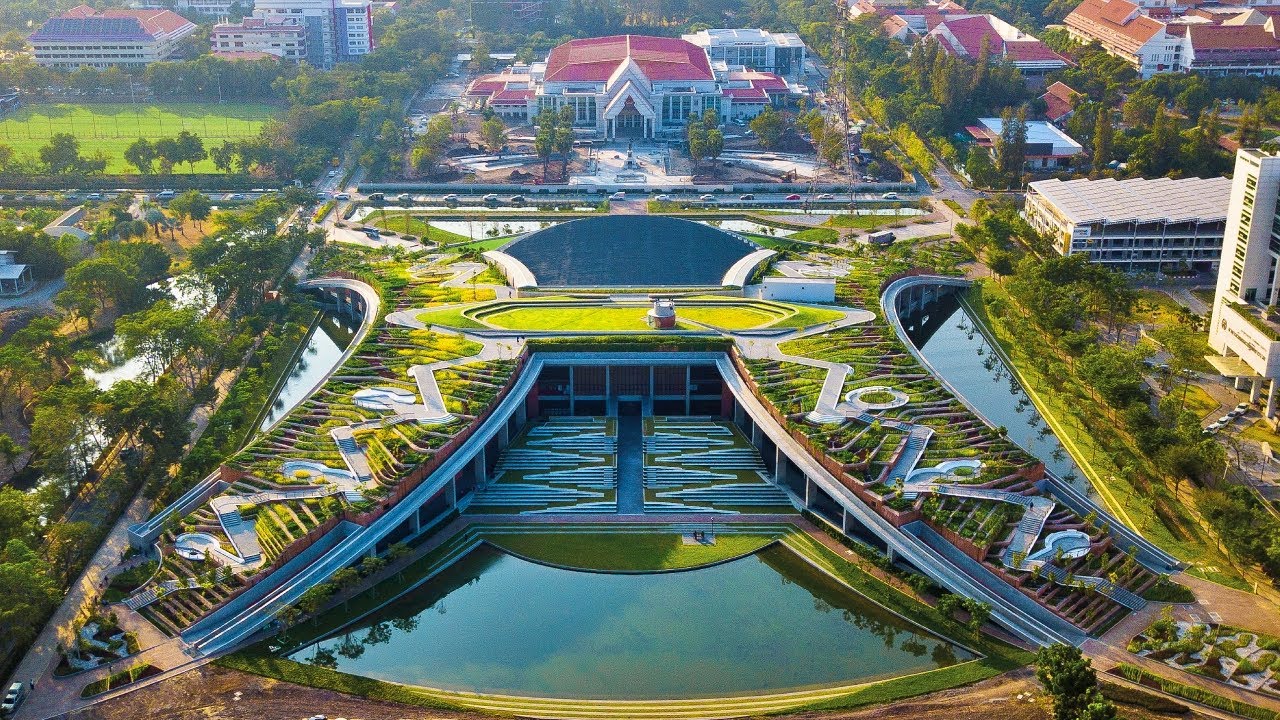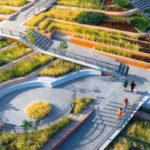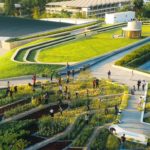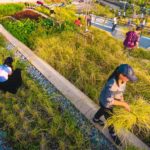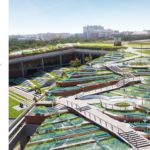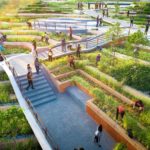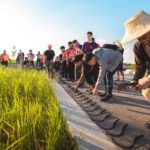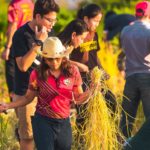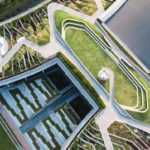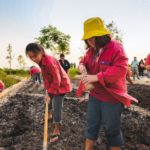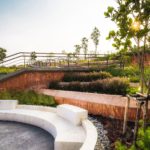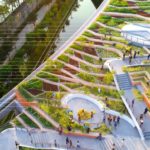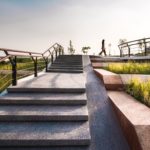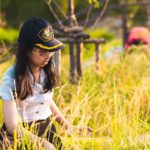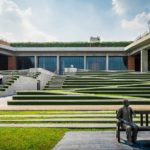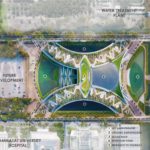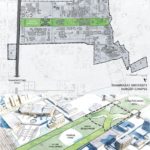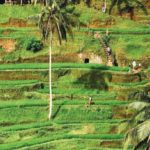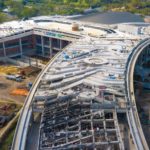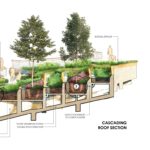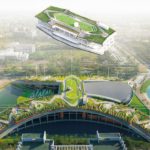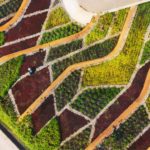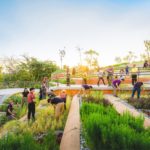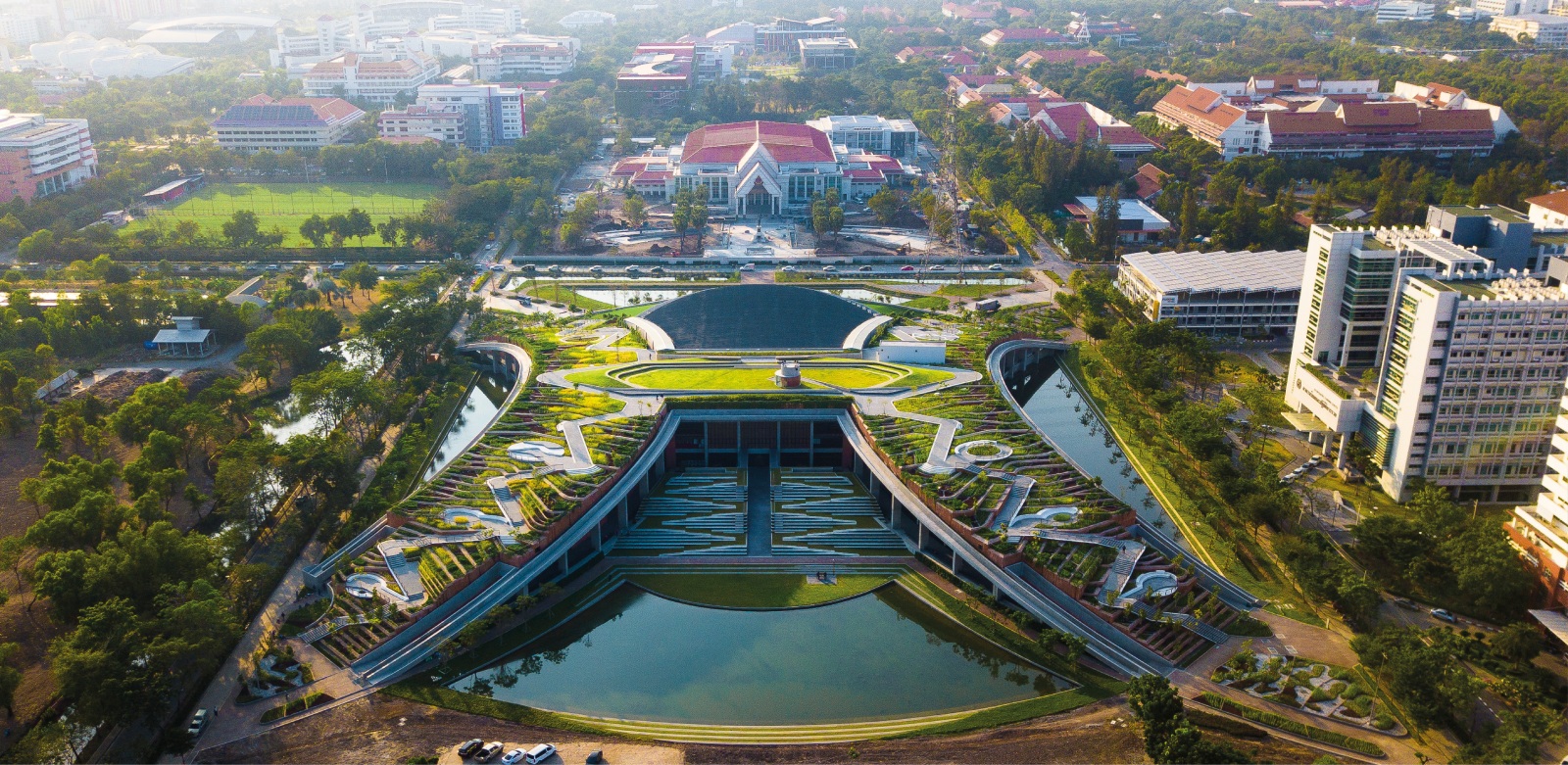
Additional Resources
Visit the TURF website.
For more information on the Thammasat University Urban Rooftop Farm (TURF), contact Kotchakorn Voraakhom of LANDPROCESS at: admin@landprocess.co.th and +66814992999.
Case Studies
Video
Watch the February 16, 2021 4:10 video Thammasat University Urban Rooftop Farm (TURF) – Featured Project from Greenroofs.com on the greenroofsTV channel on YouTube; 2020 4:12 Asia’s biggest rooftop farm unveiled as designers herald green city of the future in Bangkok by news flare on dailymotion.
News
February 16, 2021 Featured Project: Thammasat University Urban Rooftop Farm (TURF) by Linda Velazquez in Greenroofs.com; September 30, 2020 Asia’s Largest Urban Rooftop Farm Is a Model of Integrated Design by Jared Green in ASLA’s The Dirt; January 13, 2020 Thammasat University – the largest urban rooftop farm in Asia by Damian Holmes in WLA.
“Amidst the climate crisis, food and water scarcity pose tremendous threats to human civilization. Once abundant agrarian societies, Bangkok and cities across Southeast Asia, have fallen victim to unregulated urbanization. To prioritize global food security, and the health of our people and the environment, cities must utilize neglected spaces to efficiently and sustainably produce food.” ~ LANDPROCESS
Located at the Thammasat University Rangsit Campus in the Pathum Thani Province about 30 km from Bangkok, Thammasat University introduces an adaptive climate solution with Asia’s largest organic rooftop farm—Thammasat University Rooftop Farm (TURF). Designed by LANDPROCESS, the $31 million TURF incorporates sustainable food production, renewable energy, organic waste, water management and public space within its 22,000 square meters. The project was completed in December, 2019.
LANDPROCESS is a Bangkok-based landscape architecture and urban design firm founded in 2011 by landscape architect Kotchakorn Voraakhom and TURF’s design intent was to integrate landscape architecture with the ingenuity of traditional rice terraces.
“A century ago, King Rama V created the Rangsit rice plantations and a vast network of canals on the site of the rooftop farm. King Rama’s goal was to make Thailand a major jasmine rice producer. Paved over as Bangkok expanded, the rice fields were lost, but through this project, rice production has returned in a contemporary form.” ASLA’s The Dirt
Repurposing 236,806 square feet of wasted rooftop space that is carved into the mountainous architecture, TURF maximizes the terrain to create multi-functional public spaces. Inspired by the ingenuity of traditional agricultural practices on mountainous terrains across Southeast Asia, diverse cascading plantations mitigate flood risks while growing food to feed the community. The mound shape architecture pays respect to the university’s former director, Dr. Puey Ungphakorn. “Puey” means “mound under the tree,” or “nourishment,” in Thai. With an earthwork of rice terraces and modern green roof technology, the cascading rooftop absorbs, filters and slows down runoff 20 times more efficiently than conventional concrete rooftops.
Located at the main axis of the campus, the H-shape architecture symbolizes the university’s long-standing representation of egalitarianism and democracy; H stands for humanity. Divided into four equally-accessible sections, each chamber represents a core element of democracy— people, liberty, equality, and fraternity.
At the ground entrance a terraced amphitheater welcomes everyone, designed with universal outdoor access to the second-floor auditorium. The life-size sculptures of the University’s two founders bring back their presence and the principles of the institution’s democracy and sustainability.
Another large amphitheater rewards those who climb to the top, offering a 360-degree panoramic view of Bangkok. Centered in the urban rooftop farm with open sky, the spacious amphitheater provides an accessible and flexible recreational and educational space for all visitors.
As rainwater zigzags down the slopes, each level of TURF harvests runoff from the previous cell, forming unique clusters of micro-watersheds along the terrace to help absorb, filter and purify rainwater while growing food for the campus. At the end of its journey, four retention ponds await on each wing, mitigating and storing excessive rainfall for future use during drought; they are capable of holding up to 3,095,570 gallons of water once combined.
The roof is equipped with solar panels, capable of producing up to 500,000 watts per hour to irrigate the urban farm from the retaining ponds and power the building beneath it.
By carving into the mountainous architecture and maximizing the use of the inclined surface, TURF utilizes every level of the terrain to create multi-functional public spaces. Twelve individually designed areas on the slopes serve as oval-shaped outdoor classrooms.
Small pockets dispersed along the zig-zag staircases provide intimate social spaces, as well as access to the crop plantations. Every possibility of angles and corners create social spaces that align with the roof’s curvature. TURF grows more than 40 edible species, including rice, indigenous vegetables and herbs, and fruit trees. Ranging from water tolerant to drought resistant, each suits the unique microclimate created by sunlight exposure, curvature, water flow, roof’s elevation, and its wings.
TURF provides up to 20 tons (80,000 meals) of organic food each year. The campus canteens complete the sustainable food production system from start to finish, reducing CO2 emissions and waste as compost to fertilize crops for the next harvest.
Quick Facts via WLA:
Green Roof Area: 22,000 sq. m. (236,806 sq. ft)
Urban Farming Area: 7,000 sq. m. (75,300 sq. ft) 32%
Solar Roof Area 3,565 sq. m. (38,373 sq. ft.) 16%
Public Space Area 7,000 sq. m. (75,300 sq. ft.) 32%
Service and Utility 4,435 sq. m. (47,738 sq. ft.) 20%
Building Area: 60,000 sq. m (645,840 sq. ft.)
The Thammasat University Urban Rooftop Farm provides a platform to learn and share across various disciplines. Through year-round workshops on sustainable agriculture, it leaves newfound knowledge for 40,000 campus residents and the surrounding community to use at home.
Carried on through several generations of farmers who learned from the land and water on which they lived, TURF encapsulates the history of Thai agriculture. The landscape architect implemented a holistic approach inspired by local ingenuity. TURF addresses underlying ecological issues and social equity through food production, energy, waste management, water management, and the local economy to create a sustainable vision for our future cities.
TURF commits to embracing adaptive solutions to the climate crisis through food security, solar roof for renewable energy, on-site water management, urban biodiversity, and air pollution reduction in one integrative design.
As lush green turns to dry brown, TURF is a realistic, but hopeful solution, putting urban dwellers back in tune with agricultural practices. Lessons on Thai agriculture, landscape and native soil are embedded into the 1.7-acre Thammasat University Urban Rooftop Farm, educating future leaders to adapt and embrace climate challenges, by building sustainable cities for generations to come.
 Greenroofs.comConnecting the Planet + Living Architecture
Greenroofs.comConnecting the Planet + Living Architecture
